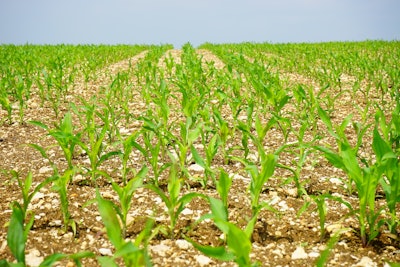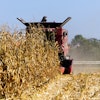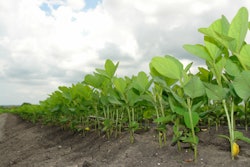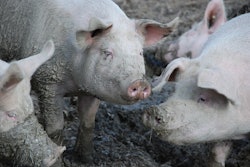
Heat & Dryness Lower Brazil Corn Production
Impacts of dryness on first corn crop vegetation density in the South and Southeast lowers 2018/19 Brazil corn production fractionally to 85.8 MMT. National-level yields are reduced <1% to 5.26 tons per hectare. Production is 8.2 MMT below USDA’s latest estimate in December, which places total corn plantings at 17.5 million hectares and yield at 5.40 tons per hectare. The last week saw some marginal improvement for drought impacted regions of Brazil. Most geographies also received some precipitation, accumulated totals for the week were again meaningfully below average everywhere except the South. While the magnitude of the dryness and geographical extent will be critical in determining impacts, low precipitation totals raise the prospect of further downside risks to yields in some core areas.
What does this mean for the U.S. farmer? Hot and dry weather during key periods of crop development leads to lower corn condition scores and lower yields. With Brazil production being reduced at some point this could be positive for the American producer. Possible impacts: support for U.S. listed futures prices, and possible export opportunities.
US/Chinese Trade Negotiations: “No Progress on Key Issues”
United States Trade Representative Robert Lighthizer did not see any progress made on structural issues during U.S. talks with China last week, Republican U.S. Senator Chuck Grassley said on Tuesday plans emerged for higher-level discussions at the end of January. The meeting came after mid-level U.S. and Chinese officials met in Beijing to discuss China's offers to address U.S. complaints about intellectual property theft and increase purchases of U.S. goods and services. The two sides are trying to reach a deal that averts a scheduled March 2 escalation of U.S. tariffs on $200 billion worth of Chinese goods. Progress on key structural issues include intellectual property, stealing trade secrets and putting pressure on corporations to share information have been slow to materialize and represent the biggest hurdles.
What does this mean for the U.S. farmer? Financial markets do not like uncertainty. While the agricultural news from the trade negotiations has generally been positive, China approving 5 GMO crops for import and some soybean export volume, the market is trading the headlines. Expect periods of acute volatility until a deal is finalized.
The risk of trading futures, hedging, and speculating can be substantial. FBN BR LLC (NFA ID: 0508695)










